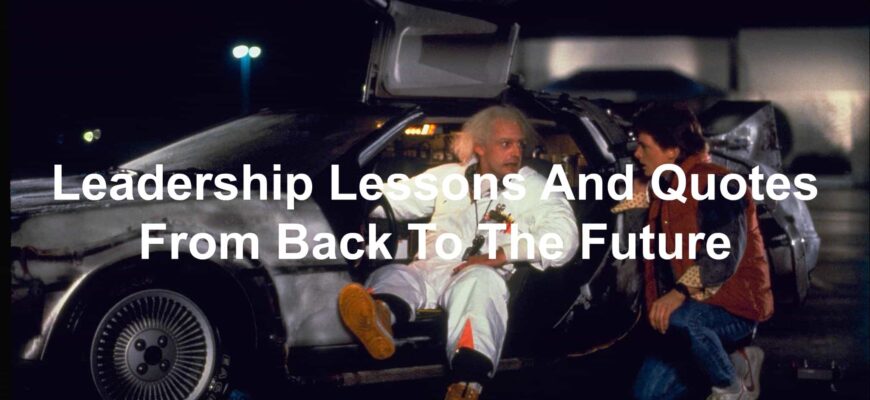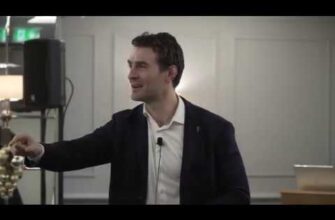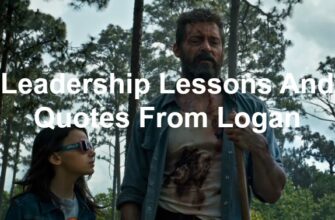This week marks an important occasion in both science and history. On October 21st, 2015, Dr. Emmett Brown and Marty McFly traveled from 1985 in their DeLorean time machine to stop Marty’s son from committing a bank robbery. This momentous occurrence is a perfect time to mourn the broken promises of self-lacing shoes and hoverboards and reminisce on the many leadership lessons provided by Marty and friends.
Nobody calls me chicken
Throughout the Back to the Future trilogy, Marty’s perpetual downfall is his inability to refrain from a dare. If someone calls him a chicken, he’ll engage in corporate espionage, commit to racing his car down a suburban street, or agree to a gunfight with an experienced Old West lawbreaker. Marty does not reflect on this dangerous pattern until he speaks with his great, great, great grandfather.
You could have just walked away and nobody would of thought the less of you for it. All it would have been was words… hot air from a buffoon. Instead, you let him rile you, rile you into playin’ his game, his way, by his rules.
As leaders, we cannot afford to succumb to peer pressure or indulge in the behaviors associated with lacking the self-control or thin skin that plagues Marty. As Charles Duhigg wrote in his popular book The Power of Habit, self-discipline has a greater effect on performance than intellectual talent. Numerous studies show that those who exert willpower outperform their peers. They are more likely to receive higher salaries, earn promotions, and be engaged in their personal and professional lives.
Past actions affect future outcomes
Wouldn’t life be easier with a time machine in your garage that could be used whenever you need to undo a mistake? Since this isn’t an option, how can we benefit from hindsight before an event takes place? Doc Brown cautioned Marty that,
…having information about the future can be extremely dangerous. Even if your intentions are good, it can backfire drastically! Whatever you’ve got to tell me, I’ll find out through the natural course of time.
Many of us can’t afford to wade through the natural course of time; the stakes are often too high and we are too ambitious/impatient. Therefore, leaders must bridge the gap between long-term intent and short-term action. This involves a fully formed vision of the future. Once this is established, you can work backwards to determine what you and your team need to be successful. Throw in a heightened awareness of plausible ramifications and you have your own inner DeLorean.
Stand for something
An inspirational scene in the first movie is when George McFly, Marty’s father, gains the confidence to stand up to Biff. He doesn’t do it to protect his ego, nor does he do it to gain tangible rewards. George takes on the high school bully to protect a woman from being assaulted.
Hey you! Get your damn hands off her!
Character is an essential quality in any leader who intends to be around for a while. According to a study by KRW International, CEOs whose employees gave them high marks for character had an average return on assets of 9.35% over a two-year period, which is five times higher than those rated as having low character. This research defined character as possessing the principles of integrity, responsibility, forgiveness, and compassion. You can memorize this or consider WWGMD (What Would George McFly Do).
Solid leadership does not entail knowledge about the time/space continuum, gigawatts, or properly handling plutonium. It does not require a tricked out car or a friend who is a scientific genius. And you don’t need to know how to work with Libyan nationalists. Leadership is the way we carry ourselves, the decisions we make, and the integrity we exhibit. This may not always come easy, but it’s not as arduous as building a flux capacitor.







